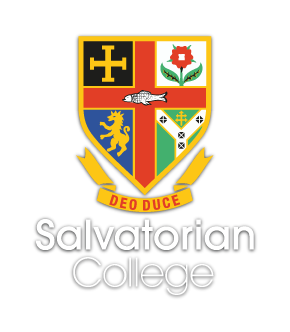Sociology
Sociology at Salvatorian
“The function of sociology, as of every science, is to reveal that which is hidden.” Pierre Bourdieu
Sociology is the fascinating study of society, human behaviour, and the structures and systems that shape our lives. At both GCSE and A Level, students delve into topics such as culture, identity, inequality, and social change, gaining a deeper understanding of the complexities of the world we live in.
Our Sociology curriculum is designed to spark curiosity, critical thinking, and empathy. Students will explore a wide range of sociological theories and research methods, allowing them to analyse and interpret the social world around them with clarity and insight.
Through engaging lessons, thought-provoking discussions, and hands-on projects, students will develop valuable skills such as research, analysis, and communication, preparing them for further study and a variety of future careers.
At Salvatorian, Sociology can be studied at A Level as part of the OCR course. This includes the choice of two options: Family and Crime and Deviance. These options have been selected to ensure that all students are able to relate to the content matter.
Our Staff
Mr D. Evans – Head of Subject
Key Stage Four
Exam Board: WJEC Eduqas
The content has been divided into two components, both of which are assessed by written examination.
Component 1: Understanding Social Processes
Component 2: Understanding Social Structures
The structure allows learners to apply their knowledge and understanding from the six topic areas of study in different contexts throughout the specification.
The first part of Component 1 focuses on key concepts, including socialisation and the acquisition of identity. It provides learners with a solid introduction to social processes and helps them think holistically throughout the content of the specification. Component 1 goes on to encourage learners to develop key concepts and processes through the study of the topic areas of family and education Learners will also be encouraged to study through these topic areas, sociological theories, concepts, evidence and methods.
The emphasis in Component 2 is on social differentiation, power and stratification. It initially focuses on the study of themes of social differentiation, stratification and power. Issues of social order and social control are studied through the topic area of crime and deviance. Component 2 also focuses on applied sociological research methods.
Key Stage Five
Exam Board: OCR
Component 01: Socialisation, culture and identity
Section A: Introducing socialisation, culture and identity
Section B: Families and relationships
Component 02: Researching and understanding social inequalities
Section A: Research methods and researching social inequalities
Section B: Understanding social inequalities
Component 03: Debates in contemporary society
Section A: Globalisation and the digital social world
Section B: Crime and deviance
Links to Future Pathways
Studying sociology opens a range of careers in areas such as welfare, education, social research, and local and central government.
Jobs directly relevant to the study of Sociology include:
- Advice worker
- Community development worker
- Secondary/ Further/ Higher education teacher/ lecturer
- Housing manager/ officer
- Marketing executive
- Policy officer
- Social researcher
- Youth worker
Jobs where the study of Sociology would be useful include:
- Charity officer
- Civil service administrator
- Family support worker
- Human resources officer
- International aid/ development worker
- Life coach
- Newspaper journalist
- Probation officer
- Public relations officer
- Social worker
- Special Education Needs Coordinator (SENCO)
Sociology related work experience along with more opportunities to learn can be found HERE.
